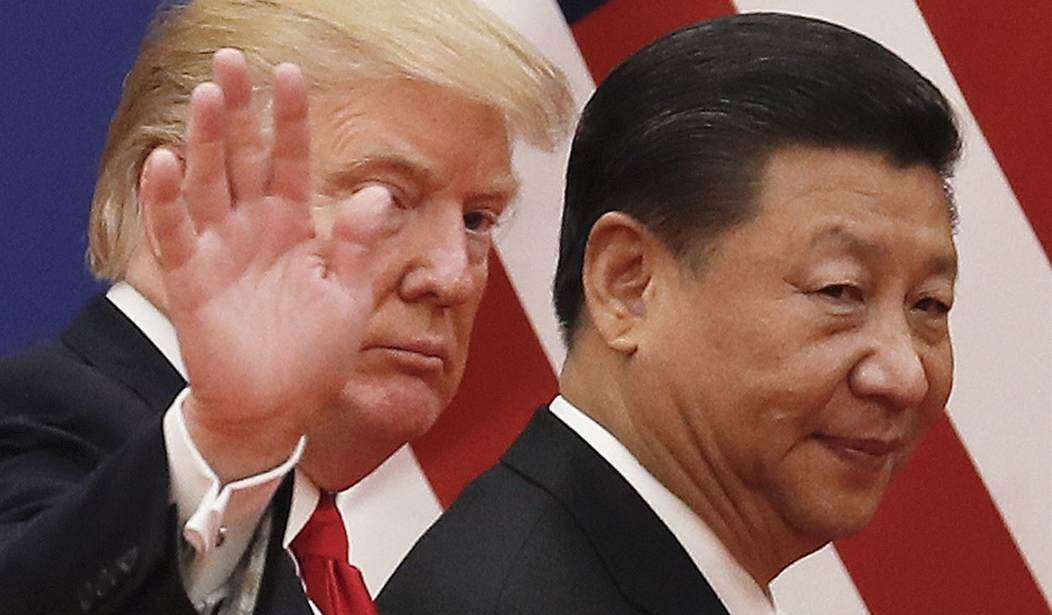The large response to my recent article How to Stop China's Debt-Trap March to World Domination merits further discussion about how stopping China's nefarious activities can be used to bring more business and greater prosperity to Latin America...and how this, in turn, will dramatically reduce illegal immigration into the United States.
The United States remains the largest economic engine in the world and the beacon of free trade and open markets. But there are no pre-conditions that say the United states must take this free trade approach with bad actors who don't reciprocate — bad actors being those nations that are debt-trapping other nations into subservience, engaging in unfair trade practices, pursuing widespread intellectual property theft, participating in cyber-crimes and sabotage, manipulating currencies, and smuggling fentanyl. China is guilty on all counts.
Placing tariffs on a bad actor (like China) in order to penalize and push it into compliance with international business norms and the rule of law is not only legitimate, it is an absolute necessity. This is the bedrock principle we use in our criminal justice system: penalize to reform. This is not about pursuing an unjust trade war with an equal who is an adherent to the rule of law. China is operating outside of acceptable international business norms and must be promptly brought into line.
So how do we proceed?
I propose a Four-Point Policy for President Trump and the United States to consider:
1. The United States initiates a special 20% China Penalty-Tariff on all imports from China commencing July 1, 2019. If China stops its nefarious activities and comes into line with international trade practices and the rule of law, this tariff will go to zero in 2020. If China does not come into compliance, this special tariff-penalty will rise to 30% in 2020, 40% in 2021, 50% in 2022, and so on. China will get the message that they are being priced out of the market if they don't reform. This poses a grave threat to China's future stability, and they will know it.
Recommended
2. The China Penalty-Tariff monies will not be absorbed into the black-hole operations of the U.S. government. Instead, one-hundred percent of these tariff monies will go into a special Exit-China Fund. Because of the vast amounts of merchandise America purchases from China, this fund will grow rapidly. The fund will solely be used to subsidize American-owned companies (not Chinese-owned entities) to relocate their manufacturing operations from China to the participating nations of the Americas. Many companies will choose to return to the United States and Canada, but far more will seek Latin America because they need lower-cost labor to remain competitive in the marketplace.
Importantly, the manufacturing companies that present a definable green, pro-environment relocation plan will be given priority for subsidy disbursements. China is an environmental disaster zone with the worst air quality and water quality in the world, and we certainly don't want to export that to the Americas. Therefore, we will incentivize a better, cleaner approach to business.
3. The United States establishes a mutually-beneficial treaty (with massive free trade zones and zero tariffs) with all interested Latin America nations in order to incentivize and spur the mass relocation of manufacturing from China to the Americas over the next decade. A key condition of this treaty will be the firm commitment of each participating Latin American nation to assist in the prevention of illegal immigration into the United States. Likewise, the resultant jobs and wealth going to Latin America will organically help to alleviate pressures incentivizing illegal immigration, addressing causes of large-scale flight at the source.
Furthermore, the lack of economic opportunity in Latin America is a large part of what continues to keep their doors open to detrimental socialistic ideas, à la Venezuela and Cuba. By bringing opportunity to Latin America, the United States will blunt China, Russia, and other socialist-dictators seeking influence in the region.
4. The United States initiates a new global economic campaign based on "Made in the Americas", "Buy in the Americas", and "Americas First" — to both undercut China and help Latin America. This inclusive approach will bring significant benefits and goodwill to both Latin America and the United States.
The transference of business to Latin America will create a cleaner, smarter, and more mutually beneficial alternative, rendering China a subpar trade partner and putting economic power in the hands of the Americas.
This proposed policy will terrify China, though they will never show it.
If China wants to become a legitimate trading partner that follows international norms and the rule of law, the United States welcomes such. However, if China wants to remain a debt-trapping trading pariah, it should remember this:
The purchasing power of the United States made modern China, and the purchasing power of the United States can also unmake modern China.
The policy proposal herein will begin the process of doing so.
George Mullen authored "The Coming Financial Tsunami" (2005) and "Welcome to the Bubble Economy" (2006) which accurately predicted the 2007-08 global economic crash. He is a principal of StudioRevolution.com in San Diego, California.

























Join the conversation as a VIP Member